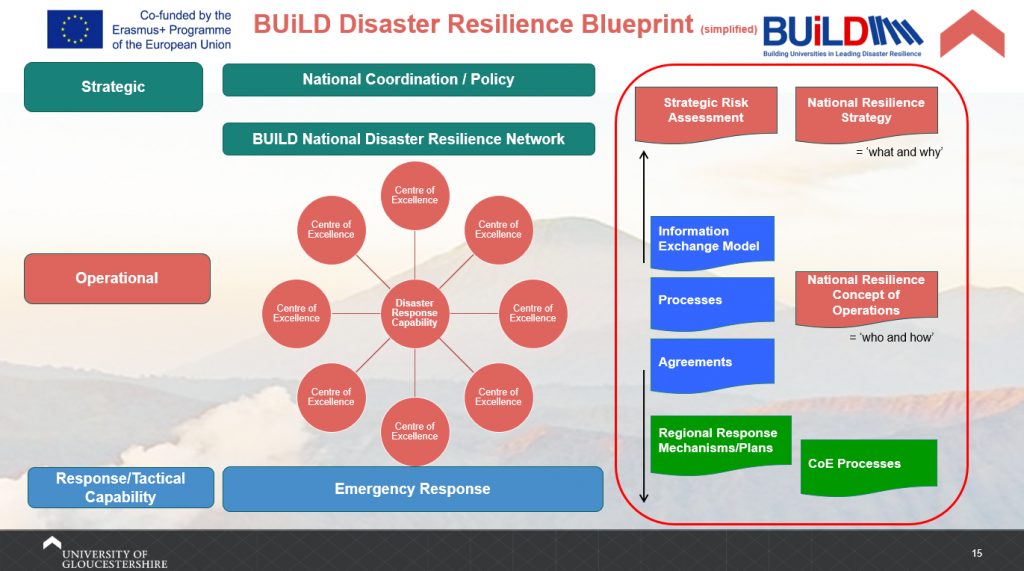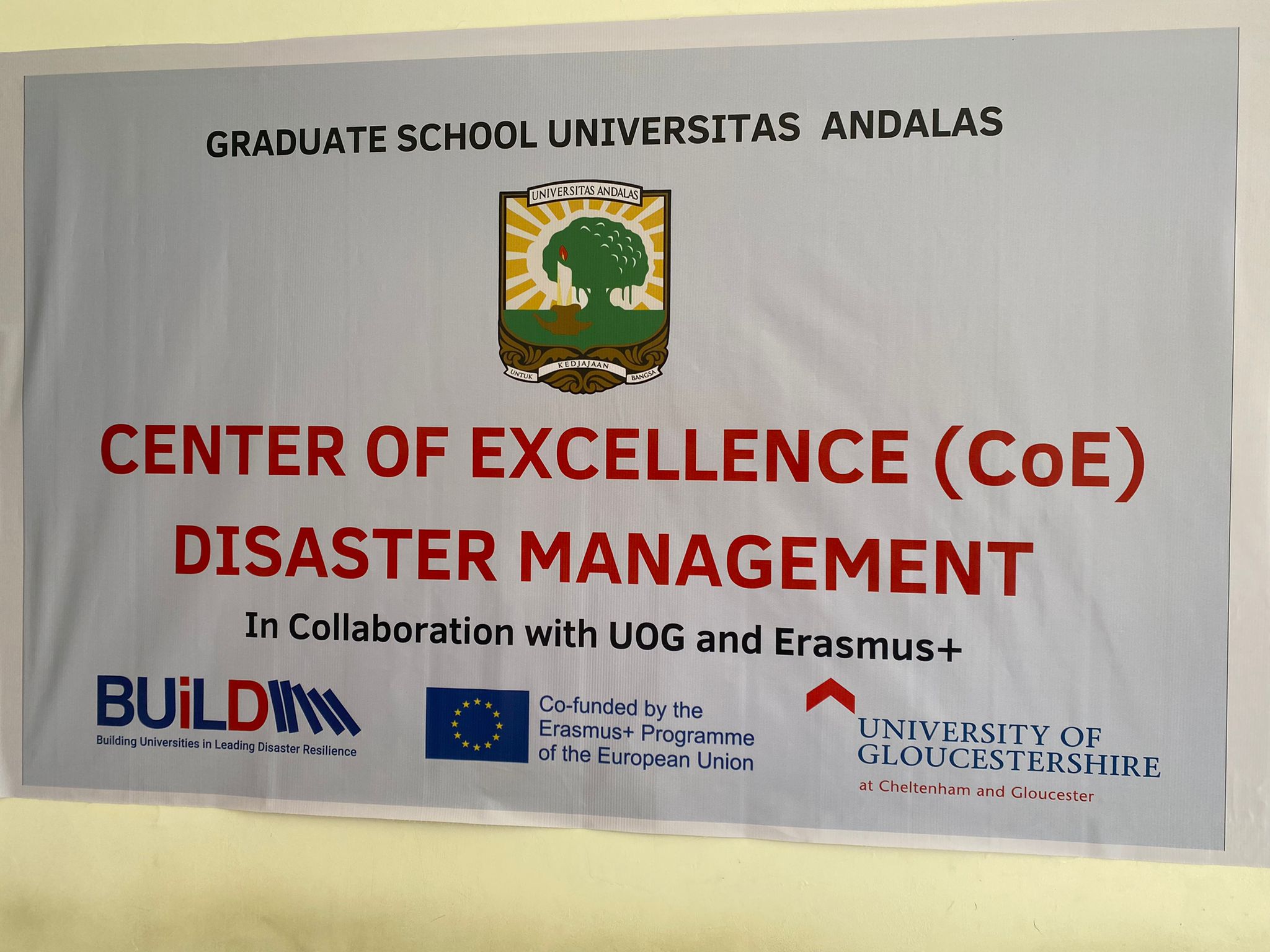The project has delivered a significant contribution to the modernisation of HEI governance across Indonesia. Based on the principles of systems thinking, multistakeholder integration, adaptive governance and scalability, this comprises three parts. Based on a common standard, the framework integrates and expands disaster resilience capacity building activities at different levels: individual, curriculum, research & research knowledge transfer, institutional, community and national.
The first part is the BUiLD Disaster Resilience Blueprint (see Trello WP2.1 Card “Final results and deliveries according to evaluation”). The blueprint maps out Indonesia’s strategic, operational and tactical disaster response capabilities and positions individual CoEDR and the BUiLD Disaster Resilience Network MaTTa Bencana within this context. According to the blueprint, the circle of influence of local CoEDRs extends locally and regionally through their direct involvement in disaster mitigation and response activities. It extends nationally through active participation in the activities pursued by MaTTa Bencana.
The governance model has emerged from the BUiLD Disaster Resilience Blueprint and Information Exchange and Management Model. Both frameworks have been informed by practitioners and by the resilience and emergency blueprint and multi-stakeholder information exchange modelling designed by the UK National Olympic Coordination Centre for the London Olympics in 2012. They have been specifically adapted for the HE sector.
The second part is the BUiLD Best Practice Model for HEI Disaster Governance, which has been informed by iterative development activities involving expert insights, consultation of international resilience standards and previous academic insights. The framework is based on the following nine design criteria: (1) localisation, (2) internal and external stakeholder integration, (3) knowledge sharing, (4) synergistic organisation of activities, (5) innovation and adaptive capability, (6) impact orientation and accountability, (7) scalability, (8) financial and operational sustainability, and (9) resilience to disruption. It synergically integrates (1) support for local, regional and national disaster response activities, (2) disaster awareness training (3) curriculum development, (4) internship and volunteering opportunities, (5) research and knowledge exchange, (6) community service, (7) fundraising, and (8) dissemination and publicity.
Because of their integrated nature, activities pursued in these areas are mutually supportive so that endeavours to build disaster resilience become self-perpetuating. Being based on a common standard that offers flexibility in implementation depending on the institutional context and local risk landscape, the framework and its composite parts are scalable across the higher education sector.
The third part is the BUiLD Disaster Resilience Framework MaTTa Bencana that has been established as “Association with Legal Status”. Managed jointly by the Directors of the eight BUiLD CoEDRs, The association has a Permanent Secretariat, and a Periodic Secretariat, which for two consecutive years will be managed and funded by one of the founding institutions. Through its four divisions (formal and professional education, research and community service, fundraising and partnership development) MaTTa Bencanca seeks to inform policy-making at national levels and disseminate project outputs further through regional networks.

Key Indicators
Cumulatively, the activities of the centres have led to a minimum of 28,243 interactions that will benefit diverse stakeholder groups.
The centres overall have created 34 full-time positions.
The centres have formed partnerships with diverse stakeholders to facilitate ongoing knowledge exchange for specific purposes. Cumulatively, these include 9 emergency organisations, 14 public sector organisations, 6 disaster aid organisations, 9 NGO, 7 communities and 4 businesses.
Since January 2020, a total of 10 incidents were responded to.
A total of 9 disaster drills were carried out involving 549 participants (59 staff, 416 students, 25 community members, 49 representatives of local businesses)
13+ Train the Trainer events took place to date, training 135 VR trainers which is over three times as many as anticipated.
266 volunteers were trained (70 staff, 60 students, 50 community members and 50 representatives of local businesses).
141 volunteers were deployed during 8 of 12 incidents that the centres collectively responded to.
Last updated 02/08/2023

